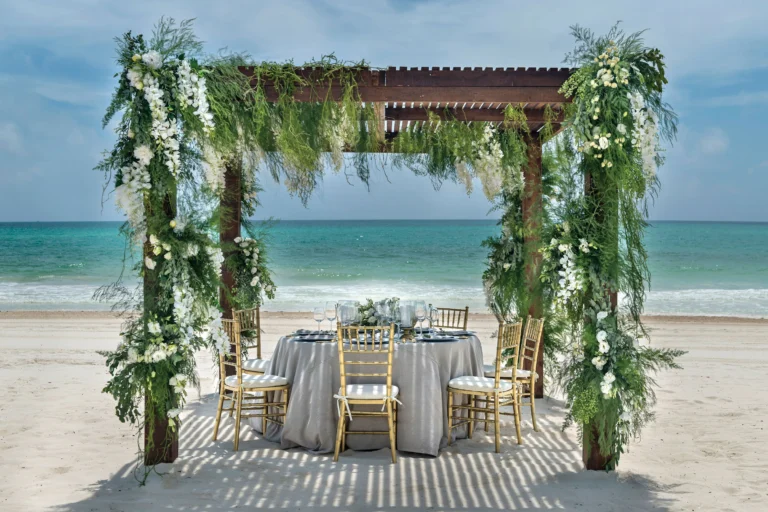Understanding Different Types of Wedding Venues
When it comes to selecting a wedding venue, couples are often presented with a wealth of options. Understanding the distinct types of wedding venues can significantly enhance the decision-making process, allowing couples to choose a space that aligns perfectly with their vision for the day. Traditional choices such as churches and banquet halls are popular due to their timeless appeal and inherent structure, suited for formal ceremonies and receptions.
Churches offer a sacred environment, making them an ideal choice for couples seeking a religious ceremony. They often come with a built-in ambiance that enhances the spiritual significance of the occasion. On the other hand, banquet halls provide versatile spaces that can be transformed to accommodate various themes, from elegant to whimsical. Their capacity can cater to larger guest lists, making them a practical option for grand celebrations.
For those looking for more distinctive options, unconventional venues are increasingly popular. Barns are often chosen for rustic-themed weddings, providing a charming, countryside backdrop. These venues allow for creative decor, and they often present a cozy environment that promotes intimate gatherings. Alternatively, beach weddings are perfect for couples desiring a serene and picturesque setting. They offer natural beauty and a relaxed atmosphere but may require weather considerations and logistical planning due to their open nature.
Gardens, with their vibrant flora, also create a lovely backdrop for outdoor weddings. This setting suits couples who envision a fairy-tale-like ceremony surrounded by nature. However, it is essential to consider seasonal availability and potential backup plans for inclement weather when selecting such venues. Ultimately, the choice of wedding venue plays a critical role in establishing the overall theme and atmosphere of the event, influencing the mood and experience for both the couple and their guests.
How to Choose the Right Wedding Venue for Your Big Day
Selecting the ideal wedding venue is a crucial step in the planning process, as it sets the tone for the entire celebration. When considering various wedding venues, several key factors should guide your decision-making. Firstly, budget considerations are paramount. It is essential to establish a clear budget that encompasses not only the venue rental fee but also additional costs such as catering, decorations, and accommodation for guests. By having a defined budget, couples can narrow down their options effectively and avoid venues that may exceed their financial means.
Guest capacity is another critical element to take into account. The chosen venue must be able to comfortably accommodate the planned guest list. It is wise to estimate the number of attendees as accurately as possible to veer away from venues that may feel overcrowded or too spacious, both of which could detract from the wedding’s atmosphere.
Location plays a significant role in venue selection as well. Couples should consider not only the distance their guests will need to travel but also accessibility. A conveniently located wedding venue can enhance attendance and overall enjoyment. Additionally, checking for nearby accommodation options is advisable, especially for out-of-town guests.
Amenities offered by the venue are also worth exploring. Couples should inquire about available features, such as tables, chairs, audio-visual equipment, and other essentials that could streamline the planning process and reduce extra expenditures. Visiting potential wedding venues in person cannot be overstated. A site visit allows couples to gauge the venue’s ambiance, layout, and service options. During these visits, it is beneficial to prepare a list of questions to ask the venue coordinators, ensuring every expectation and requirement is met. Some pertinent queries may include availability, restrictions, and coordination with preferred vendors.

Tips for Booking Your Wedding Venue
Securing the perfect wedding venue is a crucial step in planning your special day. Timing plays a significant role in this process. It is advisable to begin your search for wedding venues at least a year in advance, especially if you are considering popular locations or peak seasons. This timeframe allows ample opportunity to explore various options, visit sites, and make an informed decision without feeling rushed.
Once you have identified a suitable venue, it is essential to closely review the contract and understand the terms before signing. Contracts often contain vital information regarding deposit requirements, cancellation policies, and other crucial stipulations. Typically, a deposit is required to hold the date, and it is imperative to be aware of the amount and its non-refundable nature in case of unexpected changes. Furthermore, ensure you comprehend the venue’s policy regarding changes in guest count, catering, and setup arrangements, as these details can impact your budget significantly.
Having a backup plan is another essential aspect of booking wedding venues. Whether due to unforeseen circumstances like weather or venue unavailability, being prepared with alternate options can alleviate stress as your wedding day approaches. Consider researching additional venues that can accommodate your needs should your primary choice fall through. Connecting with wedding planners or coordinators can also provide insights and recommendations for reliable alternatives.
Common pitfalls to avoid during the booking process include making hasty decisions without conducting thorough research, overlooking hidden fees in contracts, and failing to take note of logistics such as parking and accessibility. If your plans change after booking, promptly communicate with the venue to explore possible solutions. Taking proactive steps in this process will ensure a seamless transition, should unforeseen challenges arise.
Creating Your Perfect Wedding Day at Your Chosen Venue
When it comes to creating an unforgettable wedding experience, personalizing your chosen wedding venue is crucial. The right design elements can transform an ordinary space into a reflection of your unique love story. Begin by considering the overall theme and colors you envision. For instance, rustic weddings benefit from hay bales and string lights, while elegant celebrations might call for lavish floral arrangements and candlelight.
Seating arrangements also play a significant role in the atmosphere of your event. Depending on the size and shape of your wedding venue, you might opt for traditional round tables, long communal tables, or even a mix of both to promote a casual environment. Don’t forget to account for flow and accessibility, ensuring that guests can move freely between dining, dancing, and socializing spaces. Communication with the venue manager is key here; they can provide valuable insights on the best layout for your specific location.
wedding venues Additionally, working with vendors effectively helps bring your vision to life. Establishing a solid relationship with florists, caterers, and décor specialists ensures they understand your style and preferences. Sharing inspiration photos and mood boards can significantly enhance collaboration and avoid misunderstandings. Ensure that all vendors are informed about the specifics of your venue, such as setup times and any restrictions that may be in place, to streamline the process and keep everything on track.
In essence, the personal touches you incorporate will reflect your unique wedding vision. By thoughtfully considering décor, seating, and logistics while maintaining open communication with your venue and vendor teams, you will create an atmosphere that resonates with you and your guests, resulting in a perfect wedding day.
